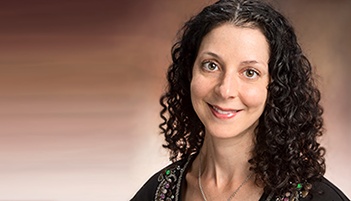HOW CAN WE HELP YOU? Call 1-800-TRY-CHOP
In This Section
CHOP's Inflammatory Bowel Disease Symposium Attracts Leading Experts
 With the rate of inflammatory bowel disease (IBD) continuing to rise, especially in the hard-the-treat population of young children, the timing couldn’t be better for the Children’s Hospital of Philadelphia’s “Personalized IBD and VEO-IBD: Genomics, Microbiome, Biologics, and Beyond” symposium.
With the rate of inflammatory bowel disease (IBD) continuing to rise, especially in the hard-the-treat population of young children, the timing couldn’t be better for the Children’s Hospital of Philadelphia’s “Personalized IBD and VEO-IBD: Genomics, Microbiome, Biologics, and Beyond” symposium.
This symposium was of particular interest because of the unique combination of the latest research developments with the most up to date advances in clinical care for very-early-onset inflammatory bowel disease (VEO-IBD) and pediatric IBD, said course Co-director Judith R. Kelsen, MD, director of CHOP’s Very Early Onset Inflammatory Bowel Disease Clinic.
The day-long event held in the spring at the Ruth and Tristram Colket Jr. Translational Research Building attracted approximately 120 attendees from across the United States and Canada, including gastroenterologists, gastrointestinal surgeons, GI fellows and residents, physician assistants, clinical nurse specialists, radiologists, pathologists, registered dieticians, and other healthcare professionals. They received a comprehensive overview of the genomic, immunologic, and microbiome discoveries in VEO-IBD and pediatric IBD and of the advances in the diagnosis, management, and therapy of the disease.
“We shaped the program to focus on translational research and the very relevant clinical discussions that are at the forefront of pediatric IBD and VEO-IBD,” Dr. Kelsen said, “meaning, we included some of the more current research that has been performed in our institution and other centers, with clinical correlation with patients.”
Some take-home messages from the event included:
- Symposium course Co-director Robert Baldassano, MD, director of the Center for Pediatric Inflammatory Bowel Disease, said objectives for the “treat to target” approach for IBD include prevention of bowel damage, reduction of long-term disability, and maintenance of good quality of life. He also said that endoscopic findings can predict clinical course, and physicians should use endoscopy or a surrogate test (for example, fecal calprotectin or imaging) when altering medical treatments.
- Andrew Grossman, MD, co-director of the Center for Pediatric Inflammatory Bowel Disease, discussed the medical management for acute severe colitis, one of the most difficult clinical scenarios in pediatric IBD.
- Kathleen Sullivan, MD, PhD, chief of Allergy and Immunology, presented an overview of the immune dysfunction in VEO-IBD and key genetic findings that have radically changed the field.
- Dr. Kelsen discussed novel therapeutic approaches in VEO-IBDand how these may extend to older patients.
- Petar Mamula, MD, director of the Endoscopy Suite, reviewed cutting-edge advances in endoscopic therapy for IBD in his talk “Endoscopic Stricture Therapy: When to Dilate, Inject, or Cut”.
- During “ITK Haploinsufficiency Leading to a VEO-IBD Syndrome,” Edward Behrens, MD, chief of the Division of Rheumatologyand the Joseph Lee Hollander Chair in Pediatric Rheumatology, discussed a novel gene discovered at CHOP. “This could be a genetically driven disease, so it’s critical to identify that gene,” Dr. Kelsen said.
- Lindsey Albenberg, DO, attending physician at CHOP’s Center for Pediatric Inflammatory Bowel Disease, said diet might be used to treat active IBD, maintain remission, or even prevent disease in the future.
Visiting faculty presented some exciting work including updates by Jeffrey Hyams, MD, division head of Gastroenterology and director of the IBD Center at Connecticut Children’s Medical Center, on multicenter trials and how they can be applied to current care. Marla Dubinsky, MD, chief of Pediatric Gastroenterology and Hepatology, director of IBD Center at Mount Sinai Medical Center, gave an overview of precision care in pediatric IBD. And Stacey Kahn, MD, attending physician at Boston Children’s Hospital, presented updates on “Fecal Microbiota Transplant: Is There a Role in IBD?” an area of great interest among other fascinating talks.
“It brought together the most cutting-edge research, as well as the best clinical care, all in one symposium, which is rather unique,” said Dr. Kelsen, noting they already have received multiple referrals to CHOP’s IBD Center as a result of the program. “Our message is we’re happy to help any patient whether they live near to us or far away.”
Based on the overwhelmingly positive feedback and the fact that physicians often misdiagnose VEO-IBD, Dr. Kelsen and her colleagues have begun planning for the next IBD and VEO-IBD symposium set for April 2019.
This year’s meeting — as well as future ones — along with some of the science presented, come as a result of CHOP’s Frontier Programs, which provide additional funding and guidance from a multidisciplinary steering committee, she said. Frontier Programs aim to forge new discoveries, deliver novel therapies, and help even more children thrive.
"This is a direct result of that award,” Dr. Kelsen said. “We couldn’t develop the program without it.”